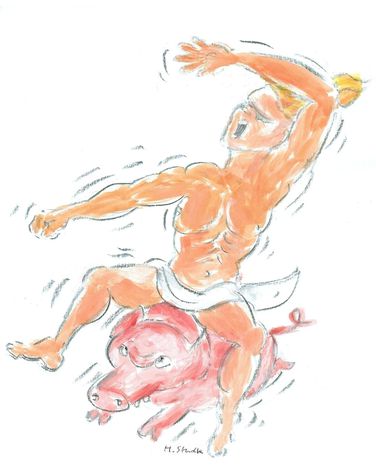
Tax the lookers
Published on
Translation by:
Cafebabel ENG (NS)Japanese economist Takuro Morinaga labels the rare specimen of ‘ikemen’, or ‘cool attractive guys’, as being detrimental to the wider social and economic problems of society. If the hotties are getting all the girls, charge them - maybe could it work for the eurozone? Phrase of the week
It was in a television interview that economist Takuro Morinaga first proposed imposing a tax on the beautiful people and lowering it for the less-beautiful. Morinaga despairs at the all-powerful influence of his country’s beautiful people; the richer and more unattached they are, the more they get all the girls. He coined the term ikemen from the words iketaru, meaning cool and attractive in Japanese, and men in English, to condemn the class of male who have a ‘monopoly on seduction’.
Morinaga’s plan of taxing the lookers won’t help crack the puzzle of the eurozone, so we’ll focus on the concept of ikemen in western and southern Europe. In French and Spanish, a good-looking guy or girl is literally called that: beau gosse/ garce or tio/a bueno. Food imagery is also popular; a smasher of a German person is a cream slice (Sahneschnitte), or a cookie (ciacha) or banana (banany) in Poland. One theory to the latter nickname comes from the fact that bananas were scarce in sixties Poland. As men toiled to import the exotic and expensive fruit, so today this honour is bestowed upon them in admiration of their beauty. As the French and English say, they look good enough to eat (t’es à croquer). However, the saying does not apply to a couple of German adolations: a scorcher in Deutschland can also be an attractive pig (geile Sau) or a hot mop (heißer Feger).
Illustration: © Henning Studte
Translated from Taxons le porc, les bananes et les beaux-gosses



